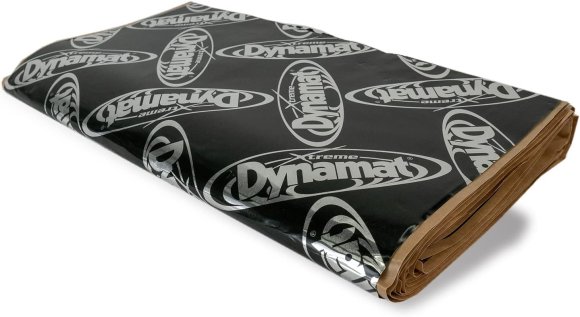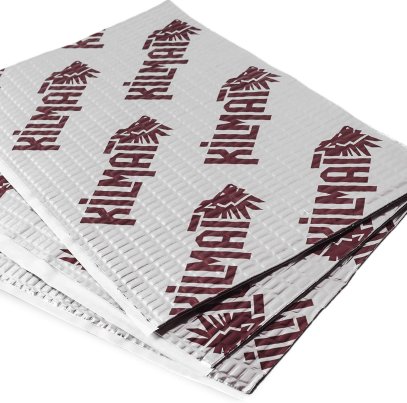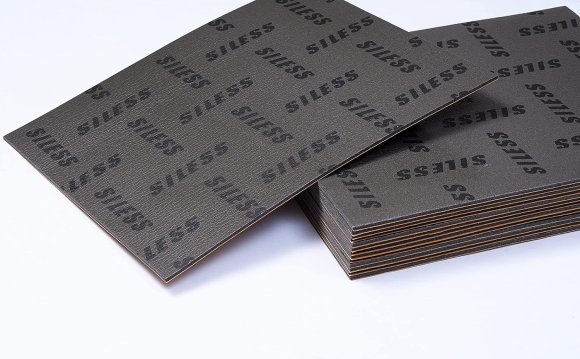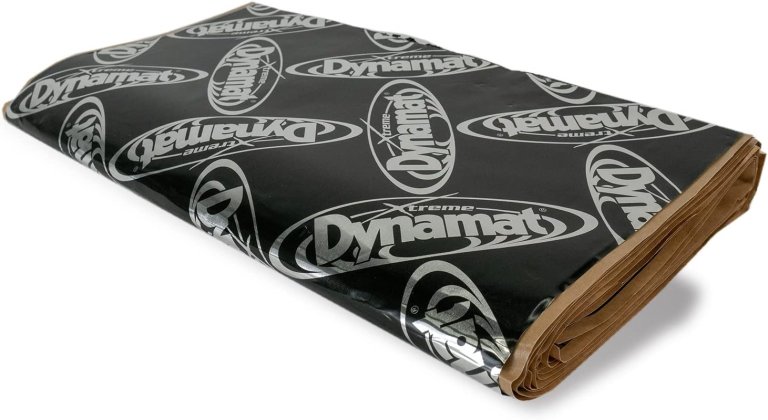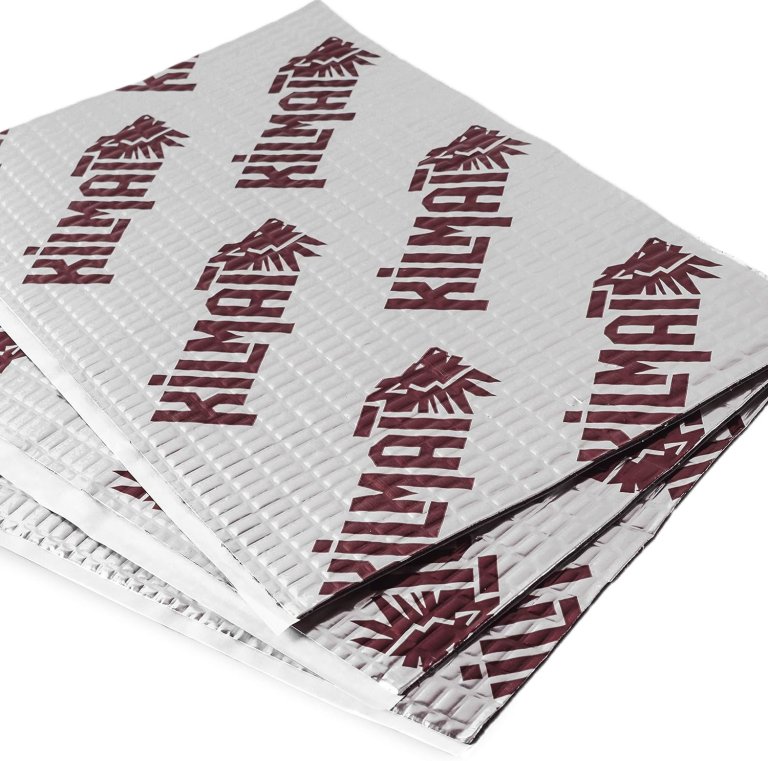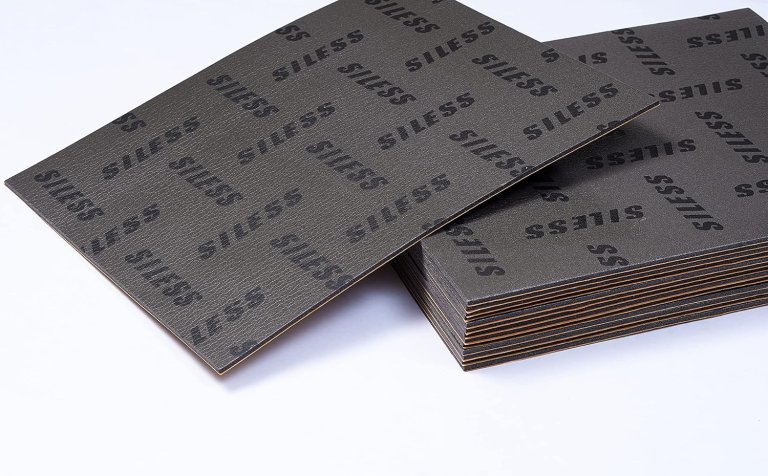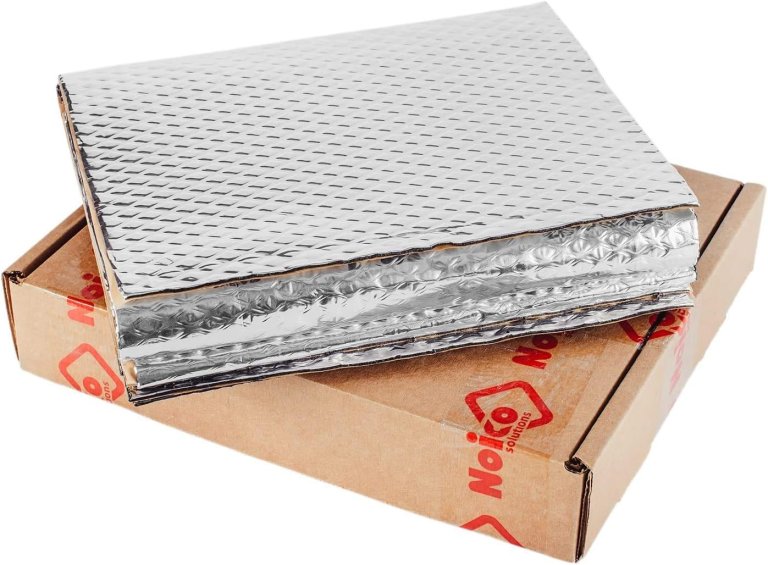We may earn revenue from the products available on this page and participate in affiliate programs. Learn more ›

You’re driving your project car along and everything’s going well. That is until the tires begin chucking gravel into the wheel well and blasts ring through the cabin like mini explosions. Yep, you forgot to install the sound deadening on your latest project car. Sound deadening is important, and it’s one simple mod that can make your car infinitely more livable for you and the passengers. Even if a car has sound deadening from the factory, adding a few extra layers in key places to your older ride can make an economy box feel a whole lot more like a luxury cruiser. And if you stripped your car all the way to the frame to restore it, you’ll have to put it back in. Everyone has room for sound deadener in their life, so we want to talk about some of the best automotive sound deadening insulation options and how you can hunt some down for yourself.
Summary List
- Best Overall: Dynamat 10455 Thick Self-Adhesive Sound Deadener
- Best Value: Kilmat Sound Deadening Mat
- Honorable Mention: Siless Liner Sound Deadening mat
- Best Closed Foam: Noico Sound Insulation
- Best Temp Control: Ez-cool Vehicle Insulation Kit
Our Methodology
Let’s get down to it. Dynamat started the industry of sound deadening insulation cars back in 1989. The product was a solution to problems car owners of all shapes and sizes dealt with, and it’s only natural for an idea like this to catch fire. It’s also only natural for everyone and their brother to start up a company and try their hand at it.
Before we leave you with the impression that we’re saying Dynamat is the only sound-deadening company to go with, we should say that a lot of the competition is worth considering. We even have some experience with them and are pleased with the performance. As we assembled our list, we made sure to include those we know to work well, that actually stick to panels you need them to, and those of different configurations so that you have options to sort through.
Our product selections, rankings, and awards for this story are based on research. While we haven’t conducted real-world testing on all of these products yet, we’ve looked at consumer testimonials and data, tutorials, and general discussions on social media and in forums. We also consider price and specification in the context of the segment. And, of course, we rely on our institutional knowledge of the automotive landscape to weed out weak products.
Best Automotive Sound Deadening Insulation Reviews & Recommendations
Best Overall: Dynamat 10455 Thick Self-Adhesive Sound Deadener
Pros
- High-quality materials used
- Easy to work with
- High tack promotes superior performance in all locations
Cons
- Relatively high price
- Thinner layers allow some more affordable options to provide better sound reduction
When it comes to sound-deadening insulation, it’s hard to ignore Dynamat as the brand is responsible for birthing this segment, and the fact that it’s still leading the industry says a lot about the quality of the product. Though it’s easy to apply, it’s not flimsy, easy to tear, nor will it crumble in the face of harsh conditions. On top of that, it’s incredibly tacky and won’t simply peel away after a minor bump. The use of Dynamat will reduce sound by 5 decibels, which might not seem like much, but it can lower the intensity to an impressive degree. It also offers respectable resistance to heat, up to 225 degrees Fahrenheit, which makes it safe for use on virtually the entire cabin of your car.
We already know that the price is going to be an issue for many as this product does cost nearly triple the competition. It’s also relatively thin, and there is speculation that it doesn’t perform quite as well as some of the more affordable options because of it.
Best Value: Kilmat Sound Deadening Mat
Pros
- Affordable price point
- Exceptional performance, despite what price suggests
- Strong bond when installed properly
Cons
- Can be difficult to install
- Hard to cut to shape
- Produces strong odor
While many will argue that it’s worth spending the money on top-tier names because this is the kind of job that you don’t want to do twice, there are some affordable products that flat-out deliver. Kilmat is one of the most affordable names on the market, and that shows as this entry is a third of the cost of premium offerings. Despite that, it’s able to cut down noise dramatically thanks to the 80 mil thickness. Furthermore, it adheres very well to bare metal with proper installation and won’t peel away, even in some of the worst conditions. We’ll also tip our hat to its ability to resist heat just shy of what the high-end stuff can withstand.
As with anything affordable, there’s always a compromise. In this case, it’s installation. While it’s not much harder than others, getting it to adhere often requires a heat gun. Also, the material produces a strong odor and can be difficult to cut to shape.
Honorable Mention: Siless Liner Sound Deadening mat
Pros
- Effectively absorbs vibration
- Blocks radiant heat
- Water-resistant
- Simple to install
Cons
- Not great for loud muffler drone
- Can be hard to remove
This high-density, closed-cell foam liner features thousands of closely packed cells that prevent air from infiltrating. As a result, it effectively absorbs vibration and does a good job of noise cancellation. The manufacturer also claims that it blocks 98 percent of radiant heat transfer from areas such as the engine and exhaust. The liner is dust-free, water-resistant, oil-resistant and fire-retardant. It features a self-adhesive application and takes just minutes to install and is simple to maneuver due to its pliability. You can use it in a variety of different places on your vehicle, including the doors, floor, roof, trunk, firewall, and under the hood. Because this product repels moisture, it prevents rust from occurring under the carpet. The liner is also durable and crush- and tear-resistant.
However, if you have a loud muffler drone, this may not provide as much sound deadening as some other products. It’s also very sticky and can be a challenge to remove.
Best Closed Foam: Noico Sound Insulation
Pros
- Affordable price point
- Doubles as sound control and thermal barrier
- Strong adhesive backing
Cons
- Does not work as well as butyl for sound deadening
- Adhesive can make installation difficult
Here’s an alternative to butyl sound deadeners. This product from Noico features a closed foam design that helps it to achieve a few things. First and foremost, it can take noise down a decent amount and secondly, it can also serve as a thermal barrier to keep the cabin cooler in the summer and warmer in the winter. Of course, there’s a lot to love about the price point, but it does deliver despite what expectations may be. On top of that, it doesn’t absorb moisture and features an incredibly strong adhesive backing that isn’t sure to peel away any time soon. There is also no smell associated with this product.
The double-edged nature of the backing does present some issues, though. It’s strong enough that the foam can tear after placement, meaning you need to take your time with installation. We should also mention that this doesn’t work as well as butyl and often serves as a layer above it to achieve desirable results.
Best Temp Control: Ez-cool Vehicle Insulation Kit
Pros
- High-quality materials used
- Exceptional heat and sound control
- Water-resistant
- Safe to use in a variety of different places in your vehicle
Cons
- Requires spray adhesive for installation
- Pops like bubble wrap when you step on it
The Ez-cool insulation kit is so good that it’s used in ambulances, fire trucks, military vehicles, and by NASCAR. It can be applied on a variety of vehicles, including cars, trucks, vans, SUVs, and RVs. It features 100-square feet of insulation with 25-feet of foil tape. The water-resistant foam core insulation provides a sound barrier, it minimizes vibration noises, and it provides a protective reflective aluminum barrier for temperature control. According to the manufacturer, it blocks 97 percent of radiant heat. The Ez-cool insulation is safe to use in door frames, under the hood, in headliners, as a firewall, and for speaker boxes. The lightweight and flexible insulation is 1/4-inches thick and is crush-resistant. It’s a little more rigid than some comparative products and does a good job overall of sound deadening.
The major drawback here is that installation requires a spray adhesive, which complicates installation. It also pops like bubble wrap when you step on it, which will get annoying in anything that’s not a specialty vehicle.
Our Verdict on the Best Automotive Sound Deadening Insulation
Again, it’s hard to ignore the performance and quality Dynamat 10455 Self-Adhesive Sound Deadener brings to the table. However, the Kilmat Sound Deadening Mat is an excellent choice on a budget. What’s your input, though? We’d love to know what sound deadener insulation you recommend!
What to Consider When Buying Sound Deadener Insulation
Types of Sound Deadener
Savants of this part of the industry might get a little peeved to see that we’re lumping foam into the discussion of sound deadening, and we have to agree that they’re right about the differences. However, we want to keep newcomers in mind. When it comes to controlling sound in your car, you’ll have a few different materials to choose from. The brief explanations below will help to understand what is better and when.
Butyl
True sound-deadening materials rely on butyl rubber. The goal this material works to achieve is cutting down vibrations and acoustics in panels. It’s going to cut down on the sounds of rocks hitting the wheel wells, exhaust noise polluting the cabin, and so on. It’s also a great choice for enhancing the performance of sound systems as it won’t harm bass or other airborne frequencies.
The material is a tacky, pliable compound that easily adheres to bare panels. It’s often coupled with an aluminum foil backing and typically comes in sheets. You will need to use a roller to apply it to uneven surfaces for the best results, but it generally won’t pull away easily after installation.
Foam
As you shop, you will come across materials that rely on closed foam materials. While it works to achieve a similar goal of cutting down noise, it’s not dealing with the same elements as butyl. Instead, it’s designed to tackle airborne sound waves. Issues like the sound of passing cars and other noise from outside of the vehicle are what it’s intended to deal with.
The issue with foam is that it can begin to interfere with sound quality within the cabin if it isn’t used effectively. However, that doesn’t mean one is universally superior to the other. If you’re looking to get a truly luxurious feel from your car, you will need to use both with strategic placement.
Spray
There aren’t many spray-on sound deadeners out there, but they are worth mentioning, as they can be a useful tool. The texture is close to a rubberized undercoating, and unlike butyl or foam technologies, they spray right out of a can, eliminating the need to cut pieces to size.
While these products will reduce noise, it’s important not to use them in place of foam or butyl sound deadening. Instead, you should use this where the others can’t reach. Exterior portions of the vehicle, tight spaces or gaps between other sound reduction materials are easily covered with the spray-on sound deadener.
FAQs
You’ve got questions. The Drive has answers.
Yes, you can sound deaden a hood. One technique involves using a base layer of sound deadener covered by a hood insulation material. There are also kits designed specifically for sound deadening your hood.
Sound deadening can improve the bass of your sound system. Using it can dramatically improve your sound system’s performance on all levels, which is why many people want it in their cars in the first place.
Yes. Your trunk might seem like its own entity, but it is a part of your vehicle’s cabin nonetheless. Neglecting to apply sound deadener here can be detrimental to your efforts to improve comfort or sound system performance.
That depends on how much you purchase. Our top pick can cost several hundred dollars depending on whether you choose the premium options with a roller and Dynapad. The good news is that there are also several options under $100.
